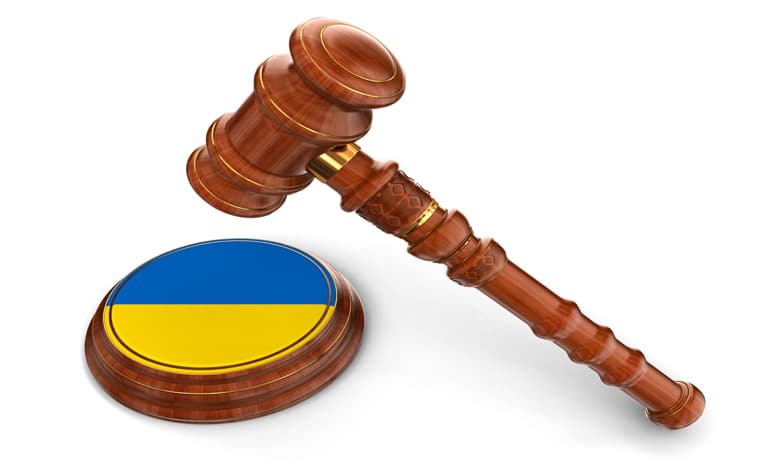In the complex world of legal translation services, understanding the cultural nuances of a language is paramount. This is especially true in legal translations into Ukrainian, where linguistic accuracy alone is not enough. This article takes a closer look at the importance of cultural complexity in Ukrainian legal translation, explains the complexities involved, and provides insights on how to effectively manage these complexities.
Table of Contents
- Decoding cultural nuances in Ukrainian legal translation
- Addressing common challenges in Ukrainian legal translation
- Frequently Asked Questions (FAQ)
- Can automatic translation tools accurately account for cultural nuances in Ukrainian legal translations?
- How can you ensure the cultural appropriateness of legal translation in Ukraine?
- What role do professional translators play in bridging cultural differences in legal translation?
- Do legal translations need to be localized for different regions of Ukraine?
- What can be done to strengthen the cultural competency of legal translators?
- Conclusion
Decoding cultural nuances in Ukrainian legal translation
Cultural nuances play an important role in Ukrainian legal translation and have a significant impact on the interpretation and application of legal texts. From traditional customs to historical heritage, several factors contribute to the complex tapestry of Ukrainian culture, all of which must be carefully considered in translation efforts.
The influence of history on legal terminology
To understand Ukrainian legal terminology, it is essential to understand the historical background of Ukraine. The country’s turbulent past, marked by periods of colonization and independence struggles, has left an indelible mark on the legal lexicon. Terms rooted in Soviet-era law can have a variety of meanings and require nuanced translation to accurately reflect their meaning in modern contexts.
Overcome linguistic ambiguity
Like any language, Ukrainian has linguistic ambiguities, which are further compounded by legal jargon and jargon. To ensure accurate and clear translations, translators must not only have linguistic skills but also a keen awareness of these ambiguities. If these complex issues are not carefully managed, misunderstandings can occur with far-reaching consequences.
Compliance with cultural norms and etiquette
Beyond linguistic considerations, it is essential to adhere to cultural norms and etiquette when performing legal translations into Ukrainian. The etiquette, honorifics, and formality built into language reflect social hierarchies and expectations. Ignoring these nuances can cause your translation to be perceived as rude or inappropriate, which can undermine the credibility of your legal document.
Implications for legal interpretation and application
The influence of cultural nuances extends beyond mere translation to the interpretation and application of legal provisions. Legal provisions must be consistent with the cultural sensibilities of Ukrainian society to ensure their effectiveness and enforceability. Failure to adapt legal document translation services to cultural norms can hinder their acceptance and implementation within the legal framework.

Addressing common challenges in Ukrainian legal translation
Understanding the complexity of cultural nuances in Ukrainian legal translation presents several challenges. Below are some common obstacles and strategies to overcome them.
Vocabulary gaps and semantic variations
Understanding the role of cultural nuances in Ukrainian legal translation:
Vocabulary gaps and semantic differences often pose challenges in legal translation, requiring translators to use creative strategies such as paraphrasing and contextualization. there is.
Idiomatic expressions/proverbs
Understand the role of cultural nuances in Ukrainian legal translation:
Idiomatic expressions and proverbs that are deeply rooted in Ukrainian culture require careful handling to accurately interpret and convey their intended meaning.
Contradictions in the legal system
Understand the role of cultural nuances in Ukrainian legal translation:
If there are discrepancies between legal systems, perform thorough research and consultation with legal experts to fill in the gaps and ensure that both source and target legal Fidelity to the framework are ensured.
Sociopolitical sense
Understand the role of cultural nuances in Ukrainian legal translations:
Due to sensitivities related to socio-political issues, translations should be carried out to avoid inadvertently offending or misrepresenting key stakeholders. Individuals should exercise caution and cultural sensitivity.
Regional dialects and variations
Understanding the role of cultural nuances in Ukrainian legal translation:
Differences in regional dialects and translation language preferences highlight the need for localized translations that resonate with diverse audiences across Ukraine.
Historical Contextualization
Understanding the role of cultural nuances in Ukrainian legal translation:
Understanding historical context is essential for accurate interpretation, and translators have a comprehensive understanding of Ukraine’s historical development and its influence on contemporary legal debates.
Frequently Asked Questions (FAQ)
Can automatic translation tools accurately account for cultural nuances in Ukrainian legal translations?
Automatic translation tools have difficulty understanding the complex cultural nuances of Ukrainian legal documents, leading to inaccuracies and misunderstandings This often happens.
How can you ensure the cultural appropriateness of legal translation in Ukraine?
Ensuring the cultural appropriateness of legal translations requires working with native speakers, cultural experts, and legal professionals to ensure accuracy and sensitivity to cultural nuances.
What role do professional translators play in bridging cultural differences in legal translation?
Professional translators act as cultural intermediaries, leveraging their language skills and cultural sensitivity to bridge the gap between source and target languages, thereby enabling culturally appropriate and accurate translations.
Do legal translations need to be localized for different regions of Ukraine?
Yes, localizing legal translations for different regions within Ukraine improves relevance and understanding in different linguistic and cultural contexts. Very important to ensure.
What can be done to strengthen the cultural competency of legal translators?
Continuing professional development, cultural experiences, and collaboration with diverse linguistic and cultural communities can strengthen the cultural competency of legal translators. It will greatly contribute to improvement.
Conclusion
Understanding the role of cultural nuances in Ukrainian legal translation is essential to obtaining accurate, culturally appropriate, and legally enforceable translations. By dealing with historical heritage, linguistic complexity, and sociocultural sensitivities, translators bridge linguistic and cultural differences, enable effective communication, and ensure the integrity of legal discussions in Ukraine.





